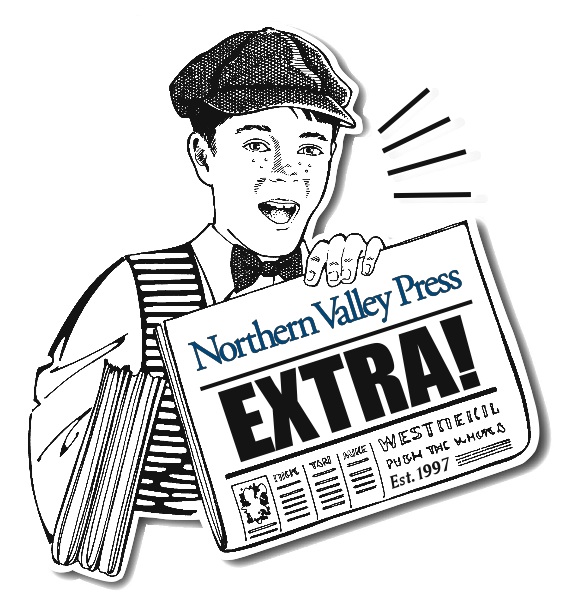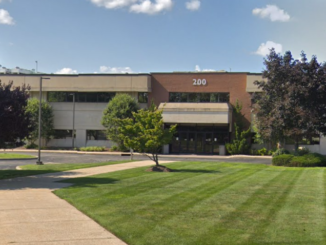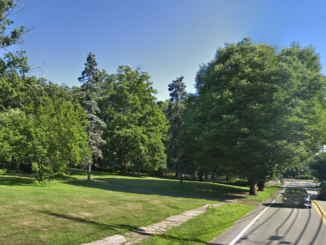
[slideshow_deploy id=’899′]
BY MICHAEL OLOHAN
OF NORTHERN VALLEY PRESS
ENGLEWOOD, NEW JERSEY —— The city Planning Board voted unanimously Jan. 25 to declare the Russell C. Major Liberty School as an area in need of redevelopment – opening the door for the city council to begin planning what future redevelopment would be most appropriate for the 116-year-old school.
The 9-0 vote to designate the school for redevelopment followed a long discussion Dec. 7 and a postponed Jan. 4 hearing. City council members will decide whether to accept or reject the board’s recommendation at an upcoming meeting, possibly Feb. 6, if the Planning Board memorializes its decision Feb. 1.
“I’m very glad about it [redevelopment designation] because it gives us an opportunity to define the highest and best use for the property,” said Council President Wayne Hamer Jan. 29.
Hamer said he would recommend “a full analysis” of the site, including engineering, plumbing and electrical systems “because we don’t want to get any surprises further down the road.”
Hamer said it “doesn’t sound attractive” to consider the school for apartments but following “a full discussion and determination of what can happen at this site…the designation allows us to come up with a myriad of choices.”
Asked about a future community or arts and cultural center use as residents have advocated, Hamer said “all of those things make sense to me.”
He said the council may likely issue a request for proposals, or RFP, for the school within a few months.
The Planning Board based its Jan. 25 decision on a T&M Associates report presented Dec. 7 that found the area around the school in disrepair and dilapidated, as well as a potential area for “smart growth” that serves environmental, economic or community purposes. The T&M study did not evaluate electric, plumbing or other school physical characteristics.
Following the redevelopment vote, Mayor Frank Huttle III, a Planning Board member, said the designation should be the first step in a “collaborative planning process” by the council.
“This needs careful planning on what the city would like to see,” said Huttle via phone Jan. 26.
Huttle said the vote to designate the area for redevelopment “could go two ways, but what does the council want to do? This should not be the developer tells the city what to develop…this is a historic building and all those discussions that it’s in bad shape, it’s terrible,” need to be examined, said the mayor.
“I hope the council hears the voices of the people, follows the [city’s] master plan, this has to be a slow step-by-step process,” Huttle added.
City council meetings in 2017 regularly featured residents advocating for the preservation and repurposing of the historic school, most frequently as a community center, or arts and cultural hub for the city.
Michael Shannon, co-chair of Project Liberty, an effort to preserve and repurpose Liberty School as a community and cultural center, said the redevelopment designation appears to be positive “if it puts in place a deliberative process that prevents any precipitous action being taken by the council.”
“For me [the designation] creates a process that protects the planning process overall,” said Shannon. He said a study should be undertaken to determine what best use the building might serve.
Prior efforts to recommend new development or senior housing for the site by a council member and the mayor have stalled with the council unable to muster the momentum or votes for proposed actions.
[slideshow_deploy id=’899′]
“Short term, we want a professionally conducted, deliberative planning process so that the public and professionals can weigh in on the building’s future,” said Shannon. He said he hopes architectural and historical professionals engaged by Project Liberty “will put together a compelling case” for the school’s preservation.
“There’s a synergy there, a leverage, for the building to play a larger role in the city’s future,” Shannon added.
Shannon said Peter Scaglione, an architect with Beyer Blinder Belle, will make a presentation on preservation and “adaptive reuse” of Liberty School at the Feb. 6 council meeting.
He said the New York City firm has restored, rehabilitated and repurposed historical properties with projects at Grand Central Terminal and Ellis Island, plus adaptive reuse of a firehouse, auto showroom, and printing plant for community, arts, and dance facilities.
“We believe that the Liberty School, constructed in 1901, should be saved and converted to a productive use rather than torn down. Its ornate brickwork, high ceilings and solid construction all contribute to the distinctive building, which would serve as ideal space for arts or community facilities,” wrote Scaglione.



